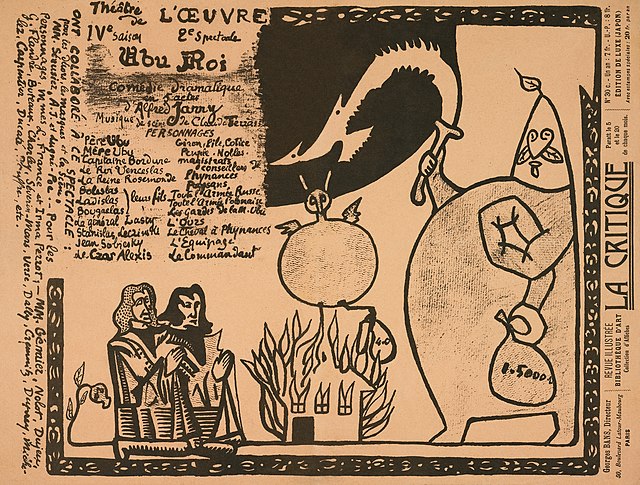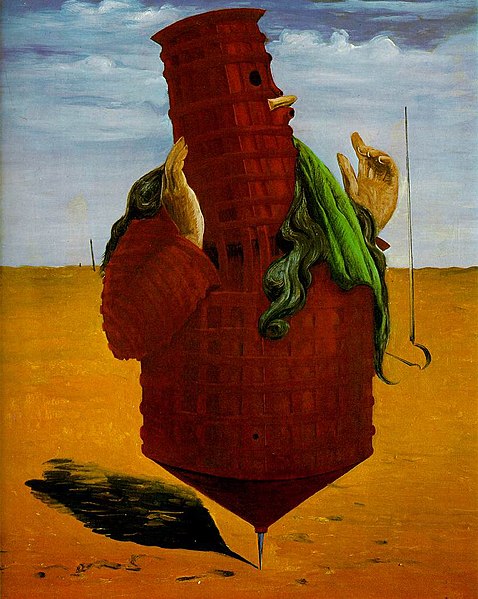Ubu Roi is a play by French writer Alfred Jarry, then 23 years old. It was first performed in Paris in 1896, by Aurélien Lugné-Poe's Théâtre de l'Œuvre at the Nouveau-Théâtre. The production's single public performance baffled and offended audiences with its unruliness and obscenity. Considered to be a wild, bizarre and comic play, significant for the way it overturns cultural rules, norms and conventions, it is seen by 20th- and 21st-century scholars to have opened the door for what became known as modernism in the 20th century, and as a precursor to Dadaism, Surrealism and the Theatre of the Absurd.
Programme from the première
Alfred Jarry, Deux aspects de la marionnette originale d'Ubu Roi, premiered at the Théâtre de l'Œuvre on 10 December 1896
2012 production of Ubu Roi, produced by the National School of Drama (New Delhi) and directed by Deepan Sivaraman
Max Ernst, Ubu Imperator, 1923. (Musée National d'Art Moderne, Paris)
Alfred Jarry was a French symbolist writer who is best known for his play Ubu Roi (1896), often cited as a forerunner of the Dada, Surrealist, and Futurist movements of the 1920s and 1930s and later the Theatre of the absurd In the 1950s and 1960s He also coined the term and philosophical concept of 'pataphysics.
Jarry in 1896
Alfred Jarry, Deux aspects de la marionnette original d'Ubu Roi, premiered at the Théâtre de l'Œuvre on 10 December 1896.
Jarry cycling in Corbeil in 1898.






